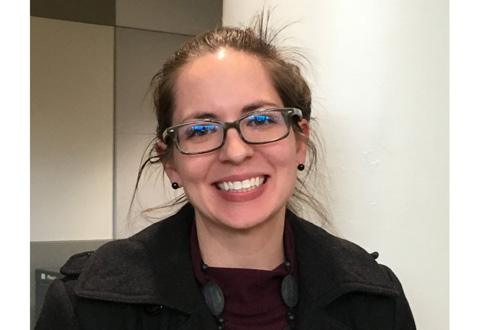Advancing Biomedical Solutions To Save Lives
By: Kelley Freund, Photos by: Ben Rollins | Categories: Alumni Achievements

Yu Shrike Zhang, PhD BME 13
Assistant Professor, Harvard Medical School
Associate Bioengineer, Brigham and Women's Hospital
Yu Shrike Zhang's career in biomedical engineering was inspired by the combination of two things during his childhood in China: his father, who worked in electrical engineering, and a love of nature. While his father’s research influenced Zhang to play with different objects to understand how they worked, the time he spent outdoors observing animals taught him biology. (In fact, Zhang has been an avid birder for 18 years, and was one of the pioneer birders in mainland China.)
“Today, a lot of research is inspired by nature,” Zhang says. “We can learn a lot by looking at animals and how they behave or how they’re built. We can use those aspects in engineering principles to allow for the development of better technologies and the better design of biomaterials.”
After earning his PhD from Georgia Tech, Zhang now works as an assistant bioengineer for Brigham and Women’s Hospital, as an assistant professor for Harvard Medical School, and as an affiliate faculty for Harvard’s Stem Cell Institute. Over the years, his research interests have included 3D bioprinting, organ-on-a-chip, biomaterials, and regenerative engineering, and his scientific contributions in these areas have been recognized with over 40 regional, national, and international awards. Today, his lab at Harvard focuses on biofabrication and bioprinting.
“Specifically, we endeavor to push the limit of an enabling technology, 3D bioprinting, in promoting our capacity to engineer living systems at unprecedented ease and precision,” Zhang says.
One application of this work is regeneration, or creating new tissues and organs to be put back in the human system to replace damaged ones. But Zhang says the same technology can also be used as a sort of model outside the body in order to screen therapeutics for patients. In other words, it can be used to personalize medicine.
While the field of bioprinting has been around for about 20 years, Zhang says interest and developments only began to pick up in the last decade. As new researchers enter the field, Zhang is enjoying the opportunity to collaborate and help push new ideas. He has published more than 200 peer-reviewed publications and has been invited to deliver many international and national lectures on bioprinting, including for the 2020 World Biomaterials Congress, the 30th Annual Conference of the European Society for Biomaterials in 2019, and the International Research Roundtable on Printing the Future of Therapeutics in 3D in 2018.
“There is lots to improve upon in the field,” he says. “There are many things that can still be done to further the technology to ensure that it will eventually be useful for biomedical applications and to make people healthier and the health screening process more efficient. I hope to continue to contribute to that.”
As an engineer, Zhang enjoys seeing ideas transition to actual products. But his biggest rewards have come in the classroom. During his tenure at Harvard Medical School, Zhang has mentored more than 200 scholars at all levels, ranging from high school and undergraduate students to postdoctoral fellows and visiting scholars.
“To see these trainees go on to the next phases of their careers, either in academia or in their industry, has been one of the most rewarding experiences in my profession,” Zhang says.


